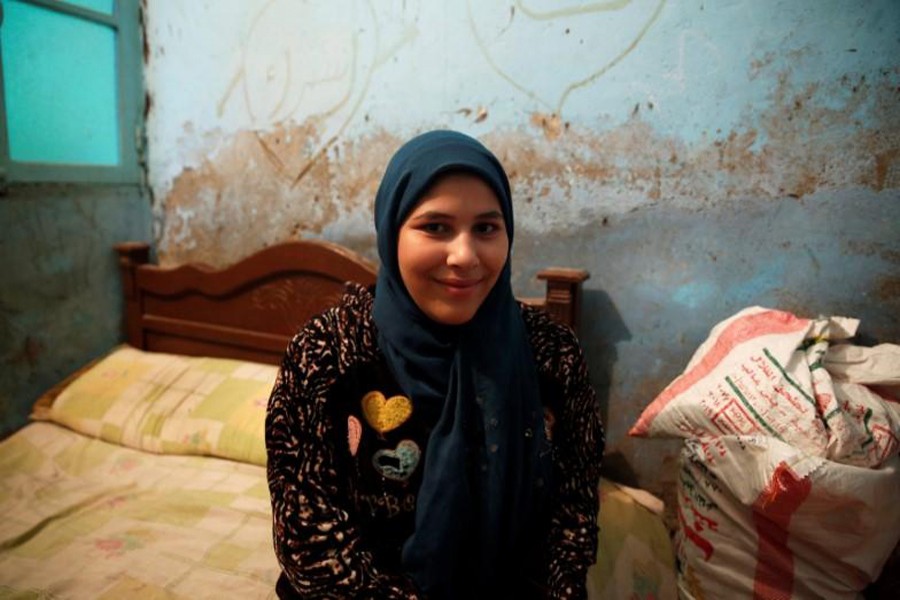In a tiny village in Egypt’s southern province of Assiut, 16-year-old Amany Shamekh, who wants to be an artist one day, recalls how she was illegally circumcised with a razor blade.
“The midwife came to the house, my mother took off my underwear and the lady said ‘hang in there’,” said Shamekh who grew up in the village of Awlad Serag.
“I felt the razor-blade, and when I saw the blood on the midwife’s hands I was going to die. I spent around a month unable to go to the bathroom because the wound hurt very much if it came in contact with water.”
Genital cutting of girls was banned in Egypt in 2008 and criminalized in 2016. But the practise often referred to as female genital mutilation (FGM) or circumcision remains a rite of passage and is often viewed as a way to promote chastity.
Villagers say husbands prefer wives to be cut and often ask young brides to undergo the procedure before their wedding.
The procedure is performed on both Muslim and Christian girls in Egypt and Sudan, but is rare elsewhere in the Arab world. It is also common in Eritrea, Ethiopia and Somalia.
A 2016 survey by the UN Children’s Fund showed that 87 per cent of women and girls aged 15-49 in Egypt have undergone the procedure.
According to the World Health Organization, more than 200 million girls and women have been cut in 30 countries in Africa, the Middle East and Asia, reports Reuters.
In the neighboring village of El-Wasata, Esraa Salah, 15, said her only memories of the night she was circumcised were the embarrassment at being naked before the doctor, fear when her mother and grandmother held her legs apart and extreme pain.
“A girl’s refusal of circumcision is useless because the decision is made since she is born. All a girl can do is to pray that god eases the pain of the operation,” Nada Salah, Esraa’s 14-year-old sister said.
Their grandmother, Mageda, said the practise cannot be stopped because it protects a girl’s chastity.
According to Orchid Project, girls and women can suffer from emotional distress throughout their lives, not to mention having feelings of fear, helplessness, horror and severe pain caused by female genital mutilation.
It is illegal in the UK and is considered to be child abuse. While in a developed country like Singapore it is not only legal and largely hidden, the procedure is carried out on babies.
It’s also followed by difficulties dealing with painful periods, painful sexual intercourse and childbirth which can lead to further trauma and lower self-esteem for young girls and women which increases the chances of depression and anxiety happening.
One of Mageda’s daughters contracted an infection after she was circumcised and cannot bear children. When asked about why she would allow the same to happen to her granddaughters Mageda said: “My dear, it’s all fate”.


